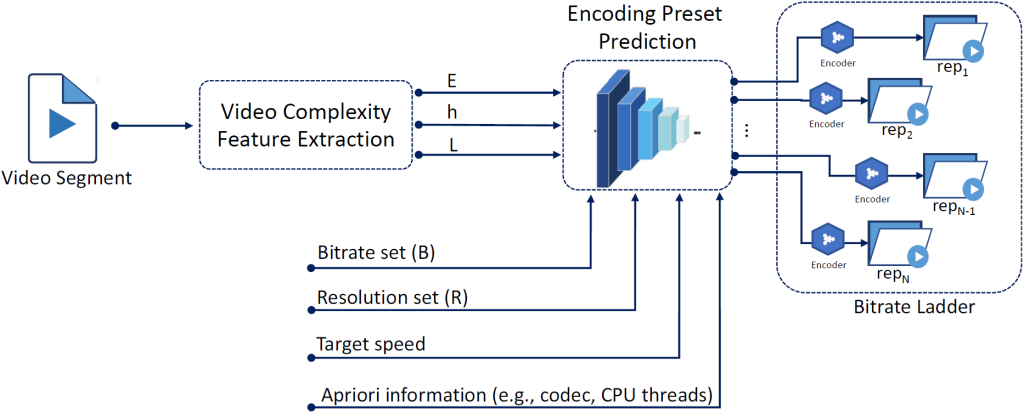Paper accepted – Content-adaptive Encoder Preset Prediction for Adaptive Live Streaming
2022 Picture Coding Symposium (PCS)
December 7-9, 2022 | San Jose, CA, USA
Vignesh V Menon (Alpen-Adria-Universität Klagenfurt), Hadi Amirpour (Alpen-Adria-Universität Klagenfurt), Prajit T Rajendran (Universite Paris-Saclay, France), Mohammad Ghanbari (School of Computer Science and Electronic Engineering, University of Essex, Colchester, UK), and Christian Timmerer (Alpen-Adria-Universität Klagenfurt)
Abstract:
In live streaming applications, a fixed set of bitrate-resolution pairs (known as bitrate ladder) is generally used to avoid additional pre-processing run-time to analyze the complexity of every video content and determine the optimized bitrate ladder. Furthermore, live encoders use the fastest available preset for encoding to ensure the minimum possible latency in streaming. For live encoders, it is expected that the encoding speed is equal to the video framerate. However, an optimized encoding preset may result in (i) increased Quality of Experience (QoE) and (ii) improved CPU utilization while encoding. In this light, this paper introduces a Content-Adaptive encoder Preset prediction Scheme (CAPS) for adaptive live video streaming applications. In this scheme, the encoder preset is determined using Discrete Cosine Transform (DCT)-energy-based low-complexity spatial and temporal features for every video segment, the number of
CPU threads allocated for each encoding instance, and the target encoding speed. Experimental results show that CAPS yields an overall quality improvement of 0.83 dB PSNR and 3.81 VMAF with the same bitrate, compared to the fastest preset encoding
of the HTTP Live Streaming (HLS) bitrate ladder using x265 HEVC open-source encoder. This is achieved by maintaining the desired encoding speed and reducing CPU idle time.


